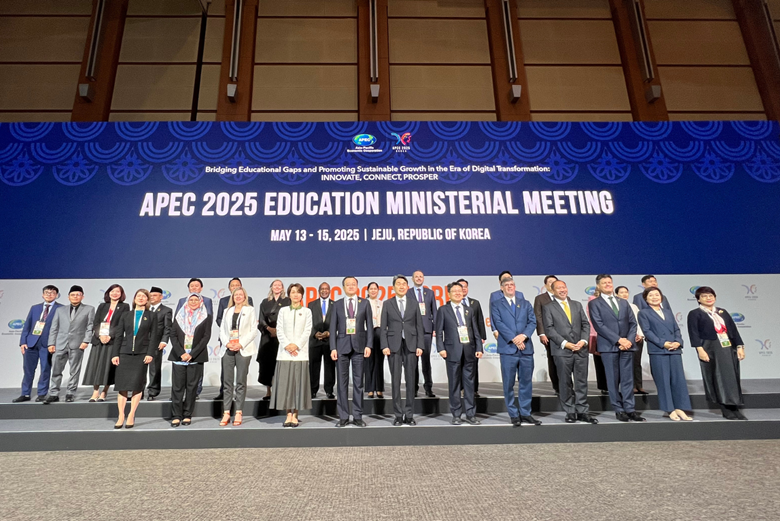
Education ministers from 21 APEC economies are gathering in Jeju, Republic of Korea, today for the 7th APEC Education Ministerial Meeting, and reaffirming their shared commitment to bridging educational divides and fostering growth that benefits all people in the region through innovation and global cooperation.
Held under the theme "Bridging Educational Gaps and Promoting Sustainable Growth in the Era of Digital Transformation: Innovate, Connect, Prosper," the meeting comes at a moment of profound global change, as member economies confront the challenges of digital disruption, demographic shifts, climate change and widening inequalities.
"We are not simply witnessing ordinary changes-we are living through a monumental transformation in human civilization," said Ju-Ho Lee, Acting President, Deputy Prime Minister and Minister of Education of the Republic of Korea, who chairs the meeting. "Education is emerging not merely as a tool of economic competitiveness, but as a pillar of sustainable prosperity for the global community."
In discussions throughout the day, ministers explore how digital transformation, particularly the rise of generative AI, is forcing a fundamental rethink of how education systems function and what they aim to achieve.
"What kind of human being are we truly seeking to nurture through education?" Acting President Lee posed. "Today's students must cultivate the ability to think critically, define problems independently and seek creative solutions. Equally important is the nurturing of human values and a sense of responsibility as members of a global community."
Korea introduces the AI Digital Textbook (AIDT), which supports learners in studying at their own pace and level, and empowers teachers to take on the role of learning designers and facilitators.
"This is more than the adoption of new tools," said Acting President Lee. "It is a bold and inclusive approach to unlock the potential of every learner and to transform classrooms into dynamic learning environments."
Ministers emphasize that developing AI-powered content, modernizing assessment systems and enhancing digital skills among teachers are key areas for collaboration to ensure inclusive, high-quality education across the region.
The meeting also highlights the need for stronger cross-border partnerships to accelerate innovation and reduce educational inequality.
"Global cooperation in education is more critical than ever," said Acting President Lee. "We must share best practices, collaborate on policies and technologies, and work hand in hand to close persistent educational gaps."
Ministers also underscores the importance of sharing AI-driven innovations, promoting teacher exchanges, strengthening regional learning networks and advancing digital inclusion initiatives as effective ways to reach underserved learners.
As APEC economies strive to build inclusive, future-ready societies, ministers reaffirm education's role as the foundation for economic resilience, social cohesion and long-term prosperity.
Korea shares its efforts to advance regional innovation ecosystems and digital lifelong learning systems in partnership with universities and local communities, helping all citizens adapt proactively to change.
"Education is not merely the transfer of knowledge. It is the most powerful instrument we have to design our shared future," said Acting President Lee. "As AI and digital technologies evolve at an unprecedented pace, we must ensure that the benefits of these advancements are distributed fairly and equitably across societies."
Throughout the meeting, ministers are aligned on the need to adapt domestic education strategies to APEC-wide priorities and committed to strengthening collaboration through the Human Resources Development Working Group and other multilateral platforms.






